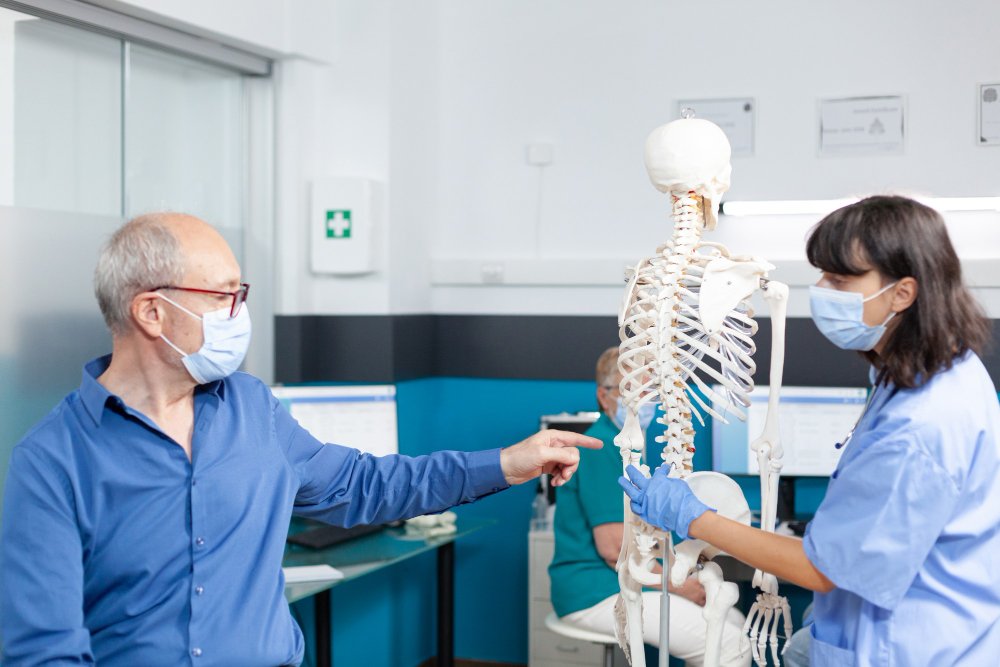Orthopedics, a field dedicated to the diagnosis, treatment, and prevention of musculoskeletal disorders, plays a pivotal role in restoring mobility, relieving pain, and improving the quality of life for millions worldwide. From fractures and joint injuries to chronic conditions like osteoarthritis and osteoporosis, orthopedic specialists employ a range of techniques to address a broad spectrum of issues affecting bones, joints, muscles, ligaments, and tendons. This article aims to shed light on the significance of orthopedic care, its various subspecialties, and advancements in treatment modalities.
To Know More About It Please Click Here
Understanding Musculoskeletal Health
The musculoskeletal system is a complex network comprising bones, muscles, joints, and connective tissues that provide structural support and facilitate movement. Maintaining the health and integrity of this system is crucial for overall well-being and mobility. However, injuries, degenerative conditions, and age-related changes can impact its function, leading to pain, stiffness, and reduced mobility.
Orthopedic Subspecialties
Orthopedic medicine encompasses several subspecialties, each focusing on specific areas of musculoskeletal health. Some common subspecialties include:
- Trauma: Orthopedic trauma specialists specialize in treating fractures, dislocations, and other acute injuries resulting from accidents, falls, or sports-related incidents.
- Joint Replacement: Orthopedic surgeons perform joint replacement surgeries, such as total knee replacement and total hip replacement, to alleviate pain and restore function in patients with severe arthritis or joint damage.
- Sports Medicine: Sports medicine physicians specialize in the diagnosis, treatment, and prevention of sports-related injuries, including sprains, strains, and tendonitis, in athletes of all levels.
- Spine Surgery: Orthopedic spine surgeons focus on treating conditions affecting the spine, such as herniated discs, spinal stenosis, and degenerative disc disease, through surgical and non-surgical interventions.
- Hand and Upper Extremity: Orthopedic hand surgeons specialize in treating conditions affecting the hand, wrist, and upper extremities, including carpal tunnel syndrome, fractures, and tendon injuries.
Advancements in Orthopedic Treatment
Recent years have witnessed significant advancements in orthopedic treatment modalities, leading to improved outcomes and patient satisfaction. Some notable advancements include:
- Minimally Invasive Surgery: Minimally invasive techniques, such as arthroscopy and laparoscopy, allow orthopedic surgeons to perform complex procedures through small incisions, resulting in less pain, faster recovery, and reduced risk of complications.
- Regenerative Medicine: Stem cell therapy and platelet-rich plasma (PRP) injections have emerged as promising treatments for musculoskeletal injuries and degenerative conditions, promoting tissue repair and regeneration.
- Robotic-Assisted Surgery: Robotic-assisted surgical systems enable orthopedic surgeons to achieve greater precision and accuracy during joint replacement and spine surgery, resulting in improved implant placement and patient outcomes.
- Biologics and Tissue Engineering: Advances in biologics and tissue engineering have led to the development of innovative treatments, such as synthetic bone grafts and tissue-engineered cartilage, for repairing damaged or degenerated tissues.
To Know More About It Please Click Here
Conclusion
Orthopedic care plays a crucial role in diagnosing, treating, and preventing musculoskeletal disorders, allowing individuals to maintain an active and fulfilling lifestyle. By understanding the various subspecialties within orthopedics and staying informed about advancements in treatment modalities, patients can make informed decisions about their musculoskeletal health. Whether recovering from an injury, managing a chronic condition, or seeking preventive care, orthopedic specialists provide comprehensive and personalized treatment options to address each patient’s unique needs, promoting mobility, function, and overall well-being.

